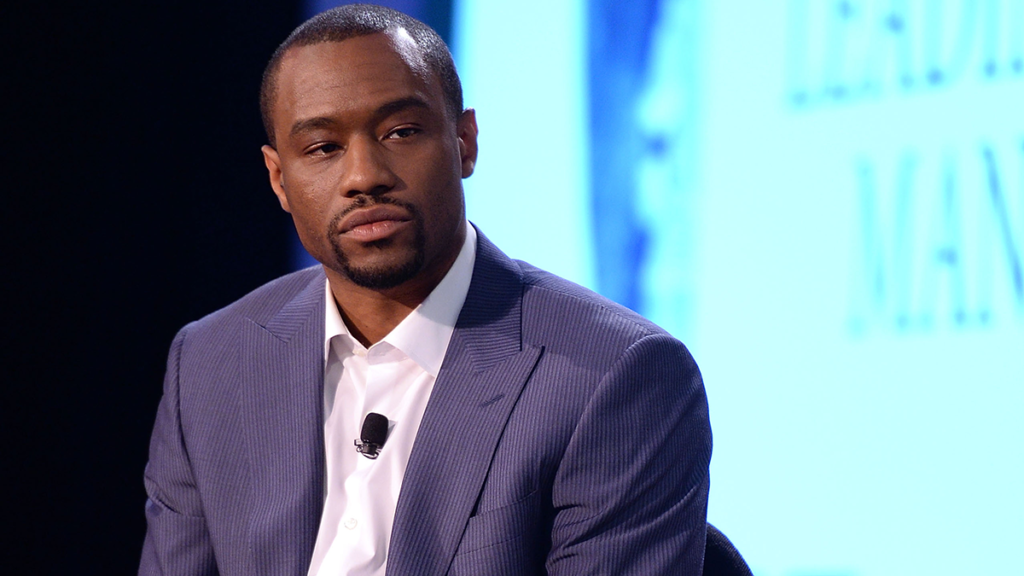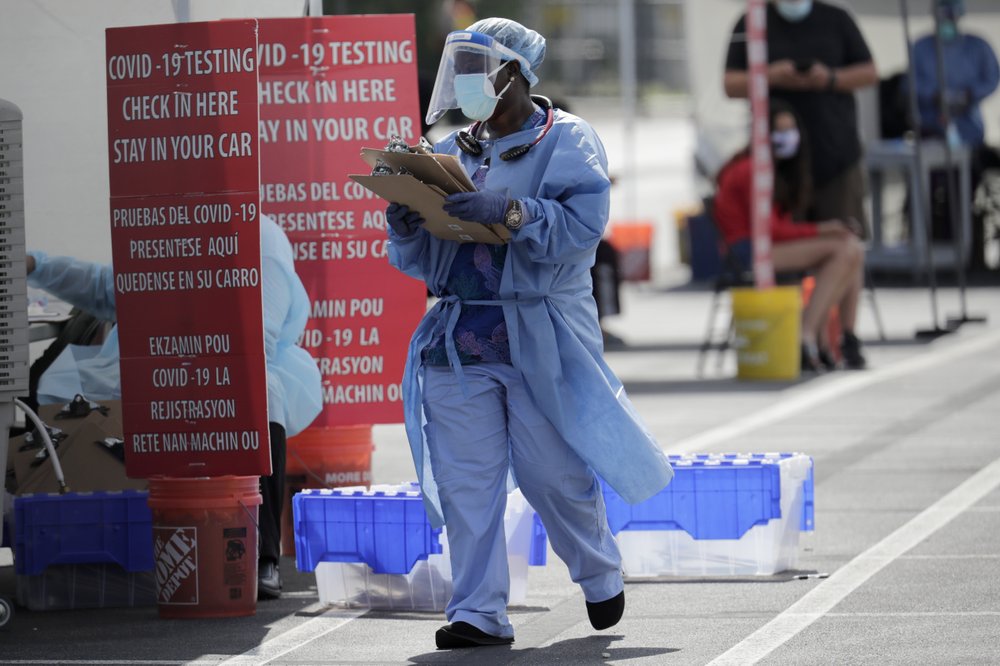Best-selling author Marc Lamont Hill says ‘We Still Here’ in his latest book on impacts of COVID-19
EXCLUSIVE: The author says the inspiration for his newest book, 'We Still Here: Pandemic, Policing, Protest, and Possibility, came in May after the killing of George Floyd
“I have never been more hopeful than I am right now.”
Marc Lamont Hill said the inspiration for his newest book, We Still Here: Pandemic, Policing, Protest, and Possibility, came on May 25. He was debating whether or not to attend a protest in his hometown of Philadelphia after the police killing of George Floyd.
Hill said his hesitation to attend the protest alongside fellow organizers arose from a fear of contracting COVID-19, which at the end of May was showing up in over 19,000 new cases a day, and would render him unable to see his elderly father.
“I thought, ‘If I can’t use my body, maybe I should use my brain,’” he explained over a Zoom call from his home in Philadelphia.
We Still Here is one of the few books on shelves now to not only take a comprehensive look at a year plagued by a deadly virus, police violence, civil unrest, and despotic politicians, but at the systems that allowed for these things to consume us. Divided into a series of conversations between Hill and French activist Frank Barat (along with a foreword from Keeanga-Yamahtta Taylor), the book explores how we got here and what we need to do to get out.

Some of solutions Hill highlights includes dismissing respectability politics, prioritizing that all Black lives Matter, and showing just how possible a world without prisons actually is. The book is composed of a series of conversations between the Hill and Barat over time, which were then transcribed and edited for clarity. It’s a peculiar choice, one that might not work for all readers.
“The goal of using the conversational format was to make the text accessible,” Hill said. “Writing is a way of not just describing the world, but understanding it.”
One of the most enlightening chapters is titled Corona Capitalism. In it, Hill assesses the economic conditions that made vulnerable communities like people of color and poor people more likely to die from COVID-19.
“In the United States, being poor and Black makes you more likely to get sick. Being poor, Black, and sick makes you more likely to die. Your proximity to death makes you disposable. Your disposability makes you more exploitable,” Hill writes.
The author believes that too much of the media focused on disinformation about the virus within at-risk communities, but failed to address the institutional structures that endangered them in the first place.

“We’re committed to simple answers to complex questions,” Hill said. “They don’t keep track of the most vulnerable people. There’s not enough conversation about people in prison, nursing homes, housing projects.”
We Still Here takes a different approach. The book critiques the emphasis on individual responsibility to not contract COVID-19, by washing hands or staying inside, if that responsibility is not coupled with an acknowledgement of the privilege that makes these precautions easier said than done.
“We don’t think about the actual systems that create COVID or make it impossible for people to exercise individual choice.” Hill said. “[For example,] I’m in prison, I live in a housing project, I gotta work 16 hours a day on the assembly line.”
“American culture is committed to nostalgia, erasure, and outright dishonesty as its response to trauma,” he writes.
And yet. Hill says he hasn’t lost hope.
Read More: Marc Lamont Hill on why he’s voting Democrat instead of third party this election
“I have never been more certain that we will be victorious in our struggle for justice than I am right now,” he explained.
The book’s title draws inspiration from a Langston Hughes poem, which he recites by heart with a grin.
“It was about saying, ‘It’s not me, it’s us. We still here and we always will be.’”
We Still Here is available now from Haymarket Books. Hill’s long-awaited book, Except for Palestine: The Limits of Progressive Politics, calls on the American Left to extend their politics to the issues of Israel-Palestine and hits shelves in February 2021.
Have you subscribed to theGrio’s new podcast “Dear Culture”? Download our newest episodes now!
TheGrio is now on Apple TV, Amazon Fire, and Roku. Download theGrio today!
